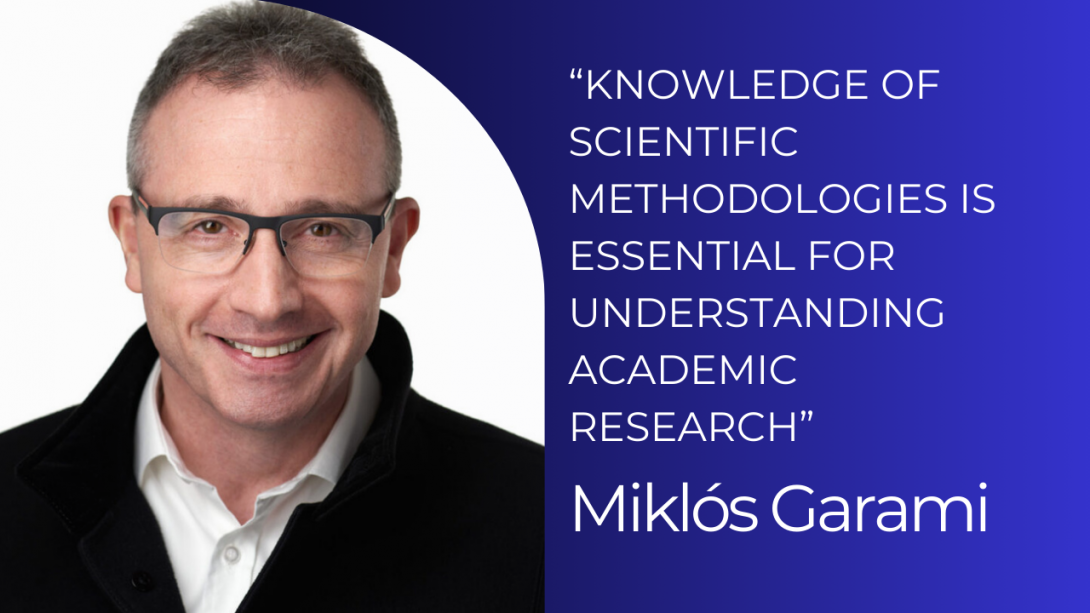
He joined the Centre for Translational Medicine three years ago as a supervisor, and he became one of the group leaders of the Pediatrics Group simultaneously. Currently, he supervises twelve Ph.D. students, one of them is about to publish a study in a highly respected, international peer-reviewed journal. In February, Dr. Miklós Garami was named Supervisor of the Month (Year 2-3).
Dr. Miklós Garami works as an associate professor at Semmelweis University, leading the Neuro-oncology Unit at the Pediatric Center Tűzoltó Street Department. He joined the program of the Centre for Translational Medicine three years ago, invited by Péter Hegyi. “I joined the team for two reasons. Firstly, when I graduated, research methodology was not taught in the undergraduate curriculum. Therefore, we couldn't learn how to conduct research or do meta-analyses. We acquired the knowledge of research methods later, independently, during our own research. Since I've been one of the CTM’s Pediatrics Group's leaders and assisted Ph.D. students as a mentor and supervisor, I clearly recognize the importance of teaching methodology. Based on my experience, I think this is the best place for students to acquire this knowledge. It is particularly important in pediatric oncology, where many studies, systematic reviews, and meta-analyses are conducted. To understand these studies, knowledge of scientific methodologies is essential. Another reason for joining the CTM was that my primary research area is pediatric oncology, where outcomes are highly measurable. It's clear-cut whether someone is completely cured, partially cured, or has relapsed.”
In his first year with CTM, Dr. Garami assisted two students as a supervisor. The following year, he took on additional five students, and in the current academic year, he accepted another five students as a supervisor. He quickly realized that collaborative work requires a more rigorous and thoughtful schedule than traditional Ph.D. education, where the teacher and the student discuss current issues and problems after working hours. At CTM, students participate in training during their first year and regularly report on their projects and progress afterwards. Weekly meetings are also scheduled. Dr. Garami has reorganized his schedule to dedicate at least half a day or even a whole day every week to CTM’s training. He could do this because his clinic has a strong team of specialists.
One of Dr. Garami's first Ph.D. students is Márk Viktor Hernádfői, whose research results will soon be published in a highly respected, international peer-reviewed journal. The Ph.D. student explored the burden of childhood cancer in his study. “It is a crucial topic as adults who suffered from such diseases in childhood might face serious social and economic challenges later in their lives. Extracting and statistically processing their data was a huge job. We analyzed tens of thousands of articles to produce our meta-analysis. Our results also have a social benefit. While in the '70s only a fraction of child patients had fully recovered, today, more than eight out of ten children with cancer are cured and grow up to become parents and grandparents. However, they might face not only the acute side effects of oncological treatments, but also the longer-term side effects. These might include organ damage, different disabilities, and social stigma, which is still prevalent today. Their situation is similar to social minority groups in disadvantaged position. We provide positive discrimination to them - and the same would be essential for those who recovered from childhood cancer too. With our research, we want to raise awareness of this life situation. We would like to continue the research, especially to find out how children recovering from cancer live their lives in Hungary. In a dedicated study, we also want to investigate how childhood cancer influenced the life of their families.”
(Szabó Emese)